- Treatments
- Venus Versa Treatments
- Acne Scar Removal
Acne Scar Removal
While acne can vary in severity (from a few spots appearing once in a while; to prolonged, significant issues that leave deep scarring) and the condition can be treated, however sometimes even after treatment, patients might be left with scarring.
This can be exceptionally upsetting for patients since although the treatment has been effective in eliminating one problem, the complication of scarring presents another. Acne scarring can have a detrimental impact on self-confidence, which may exacerbate psychological issues caused by acne.
To counteract this, some patients may wish to minimise the appearance of their acne scarring. This may be achieved through various specialised dermatology treatments, however, not all treatments are suitable for all patients.
At Derma, we are able to safely and effectively treat patients using the gold standard of acne scar removal treatment with the Venus Versa device. The Venus Versa uses nanoFractional Radio Frequency and SmartScan technology to deliver energy through the skins surface, which stimulates fibroblasts and rebuilds collagen. The results are reduced skin damage with low downtime. The unique pin pattern delivers targeted energy to deeper skin layers by creating very small, micro-dermal wounds. The surrounding healthy tissue helps to heal these micro-dermal wounds, which improves skin texture.
What is the Benefit of Acne Scar Removal?
The removal or improvement of acne scarring can help to improve self-confidence, while restoring a more uniform, healthy appearance to the skin.
Patients wishing to minimise the appearance of their acne scarring would be potential candidates to undergo skin resurfacing.
Who is Acne Scar Removal Suitable For?
Patients wishing to minimise the appearance of their acne scarring would be potential candidates to undergo acne scar removal, however not all treatments are suitable for all patients.
Whether the scars from acne are relatively recent, or they have been present for some time, acne scar removal is an option for many people.
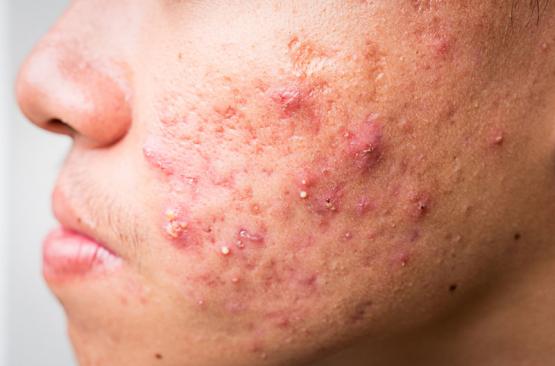
For safety reasons, you may not be able to get this treatment if you have/are:
What is the Process of Acne Scar Removal?
The main goal of acne scar removal is to restore a healthy appearance and texture to the skin, where complications from acne has left scarring.
The components of acne scarring that a dermatologist will address are;
In some cases, this may be achieved through highly specialised methods that work to slough off the superficial layers of the skin, and promote healthy skin.
Before undergoing treatment to remove or reduce acne scarring, you must first undergo a consultation with the dermatologist to evaluate whether you are suitable for treatment.
In most cases, acne scars can be treated, but it is important to note that there might be certain scars where an attempt to remove it would worsen its appearance. For this reason, the dermatologist might not agree to perform a certain treatment; or, if the scarring is widespread, they might explain that you could expect to see results on some parts of the skin and not others. Each individual scar is different, and must be assessed before a course of treatment is deemed appropriate, but most of the time, the dermatologist will be able to treat acne scars.
While there may be products available over the counter that utilise similar terminologies, the treatments offered by the dermatologist are much stronger and more effective, which is why they require the specialist care of a doctor.
In some instances, dermal filler might be used to treat depressions in the skin caused by acne, which are sometimes called ‘ice-pick scars.’
Raised acne scars may respond well to injections that soften and flatten them; but in some cases, it might be necessary to perform a minor surgery to excise a raised scar, which might afterwards be treated with another method, such as injections or other methods to resurface the skin.
It may be suitable to combine multiple types of treatment, however, this should only be done by the dermatologist and under their supervision.
Whilst the treatment may be uncomfortable, it is not usually considered painful. You will feel tiny pins on your skin followed by a little zap followed by intense heat, similar to the feeling of sunburn, and your face will look red right after the treatment.
Depending on the type of treatment or treatments, you may require multiple sessions to achieve results; and you may need to attend further appointments, or appointments scheduled at regular intervals to monitor the response to treatment. Prior to your treatment make sure your skin is clean. Do not apply any lotions, creams, perfumes, powder, or makeup before your treatment session, and avoid tanning. It also helps to be prepared with information about your medical history—the technician will likely ask about it.
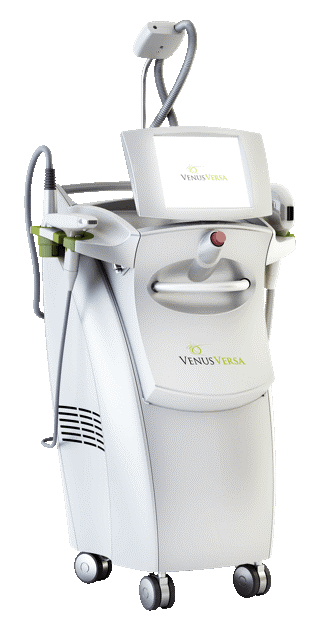
Some types of treatment for acne scarring might include;
• Chemical skin peeling;
• Microneedling;
• Retinoid therapy
• Surgery
What are the Risks and Complications of Acne Scar Removal?
If the patient meets all criteria to have the treatment, it is quite safe and effective, in the properly trained hands, but it is possible to have complications, and in most cases they would be minor – such as;
Some people can experience dizziness after treatment, and it may be beneficial to rest in the waiting room or have a cup of tea following your treatment until this regulates. If it is your first time undergoing treatment, and you are prone to dizziness, it might be a good idea to have someone pick you up from your appointment, although most people who undergo treatment feel safe to drive afterwards.
What is the Recovery Time and Outcome for Acne Scar Removal?
The recovery time varies for different treatments, which the dermatologist will discuss with you directly during consultation, when they will also explain all of the potential side-effects, to enable you to select the best acne scar removal treatment option for you.
Your skin may feel hot after your treatment, however, you can use a fan to cool it down. Avoid touching or scratching the treatment area. Do not put lotion, makeup, or anything else on your skin, including water, for 24 hours. After 24 hours, you should apply sunscreen (at least SPF 30), preferably one without chemicals. Also avoid rigorous exercise and hot baths or massages on the treatment area for the first 2 days after your session. Make sure to keep your skin clean and protected from the sun. Avoid any sort of tanning.
Whatever your needs, you can rest assured that Derma will provide the very best care for your skin, with access to the latest research and treatments. We have a very high success rate in treating acne scarring, with almost all patients seeing significant improvements delivered over time.
Before and After
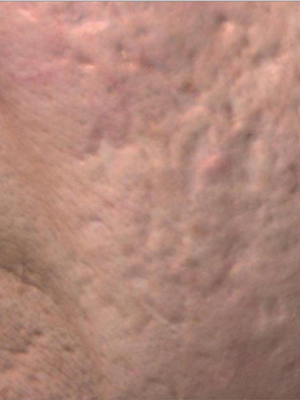
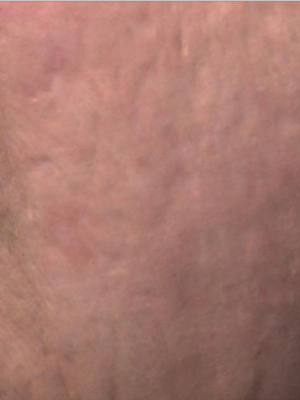
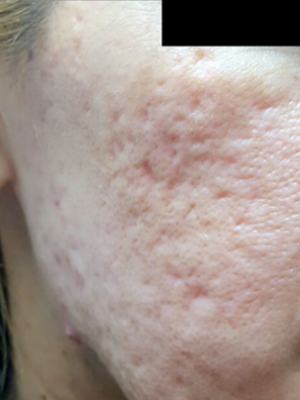
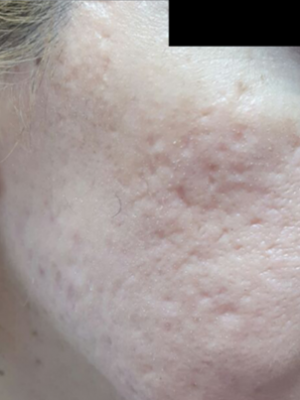
Send an Enquiry